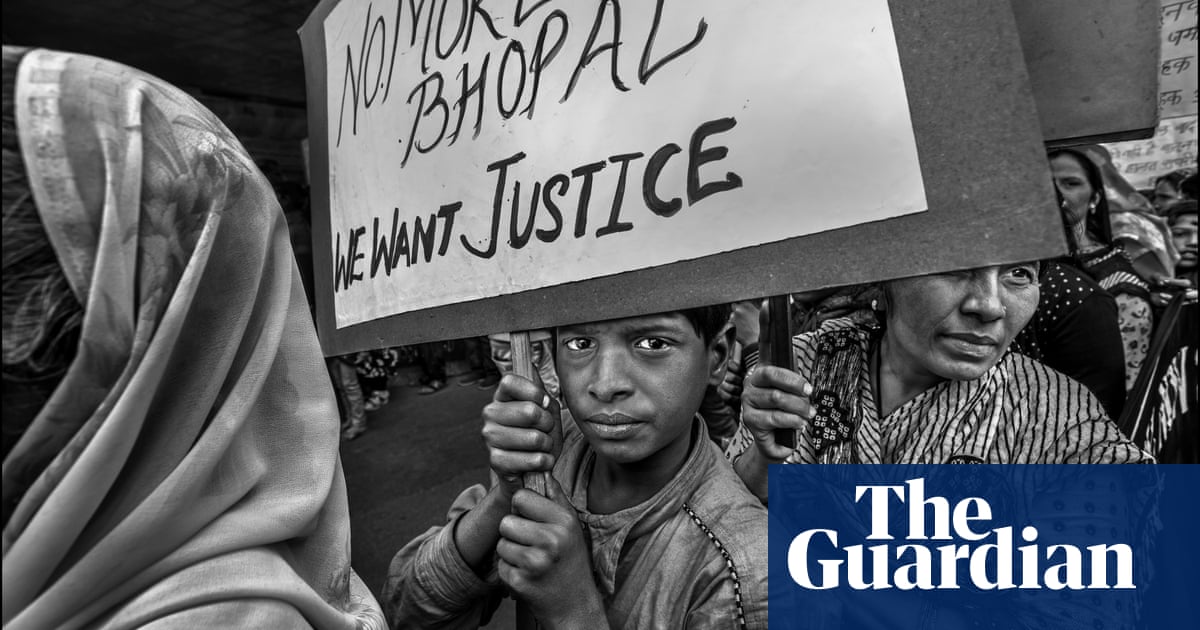
ild Justice is seen by many as the disruptive new kid on the block. The environmental group has ruffled the feathers of countryside goliaths – the shooting and farming industries – and yet its main ally is the greatest establishment of them all: the law.
“Wild Justice gets called lots of names,” says one of its founders, Dr Mark Avery, who was the RSPB’s conservation director for nearly 13 years. “We’re told we’re extremists, we’re zealots, and we’re activists, but what we’re doing is extremely middle class. We’re just using the law and saying ‘you’re not allowed to do that’.”
Avery runs Wild Justice with the TV presenter and conservationist Chris Packham, and raptor conservationist Ruth Tingay. “It’s three mates, with no staff, just larking about,” says Avery.
Going to court is not what most people consider to be larking about, but that is what the group specialises in, with the help of lawyers at Leigh Day. They are not lobbying for new laws, but making sure the government sticks to the ones already in place.
The group was created in February 2019 and went straight for the jugular by challenging England’s three general licences that name bird species which can be shot as “pests” if they are believed to be damaging crops, spreading disease, affecting endangered species or putting public safety at risk. There is no evidence some of these birds, which include wood pigeons, crows, magpies and jays, are pests, Leigh Day argued. Natural England – the government’s wildlife watchdog – acknowledged its legal point and without warning temporarily removed the three general licences.
The furore rippled across rural communities, attracting the sort of attention most conservationists are unaccustomed to. Farmers were shocked because they had only 36 hours’ notice that licences were being removed, and said they had no legal means to control “problem” birds that might damage crops or livestock in the meantime. Some conservationists were also angry at Natural England’s timing because it was the start of breeding season. Birds such as crows and magpies are believed to plunder the eggs and young of some endangered bird species, and conservationists too were left with no legal means of controlling them. Packham found dead crows hanging outside his home.
After a prolonged legal dispute, the licences were legally changed on 1 January this year. No native species are now listed on all three of the general licences, though some are still on individual licences.
This amended licensing system currently only applies to England. In January, Natural Resources Wales said the Welsh general licences were lawful, following legal action from Wild Justice. Wild Justice has not challenged general licences in Northern Ireland or Scotland, although Scotland removed certain bird species from the general licences last year.
Avery says that wildlife charities and NGOs have been too soft and nice when it comes to protecting nature, and that now is the time to play hardball. He adds: “The building industry, the shooting industry and the farming industry have been absolutely tough and resolute in getting their members what they want. We have to be every bit as tough and resolute.
“You can’t just go ‘yeah, we’ve listened to you and yeah we’ve decided not to do anything’ – if you have a strong legal point, they’ve got to do something.”
The group’s second big case concerned the release of about 60 million non-native game birds every year. Pheasants and partridges eat native insects and reptiles, which is likely to have an impact on ecosystems. About two-thirds of game birds are not shot and retrieved, and those that die of other causes unnaturally increase scavenger populations, the group argued.
Wild Justice’s legal argument was that the government had not properly assessed the impact these non-native animals had on protected sites, which it had a statutory duty to protect under the EU’s habitats directive.
In October the government announced it would add the pheasant and red-legged partridge to the Wildlife and Countryside Act, classifying them as “non-native pest species”, meaning they acknowledged they could cause ecological damage. In January, the Department for Environment, Food & Rural Affairs (Defra) said it would bring in an interim licensing system later this year for game bird managers working on shoots in England. People are expecting to have to apply for a licence to release birds within 500 metres of special areas of conservation and special protection areas.
Avery says this is a good start but he wants all sites of special scientific interest to be included and says the distance should increase. “If they stick to 500 metres, they might well find that they’re facing another legal challenge – this isn’t over yet.”
The Welsh government says it intends to bring in restrictions for 2022, but it is not clear if these restrictions will be the same as those in England. There has been no action in Northern Ireland or Scotland.
Critics of Wild Justice say the group’s actions are unhelpful at best. Tony Juniper, chair of Natural England, said making legal challenges could lead to positive outcomes for conservation, but added: “In my experience legal challenge on its own is rarely sufficient to achieve long-lasting conservation benefit, and usually needs to be combined into broader strategies that also seek to change hearts and minds and to bring people together.
“One concern I have at the moment is how many conservation debates have become highly polarised, making it harder to achieve progress on the ground. Sometimes, legal actions can make that worse.”
Garry Doolan, deputy director of communications and public affairs at the British Association for Shooting and Conservation, said Wild Justice had won publicity but lost the countryside. The association argues that it has made general licences more complicated but would have little on-the-ground impact, adding: “Their combative approach has alienated farmers, rural businesses, the shooting community and even conservationists.”
The National Farmers’ Union deputy president, Stuart Roberts, said the new general licences regime must be straightforward, but was happy with the outcome, saying: “It’s encouraging that Defra has taken this on board and the new licences appear to fit within these principles.”
Defra declined to give additional comments.
Packham is happy that the group is divisive and creates a scene. He says outbursts made by people who disagree means word gets out, adding: “Our change is noisy change, we get a lot of publicity because we’re challenging people, we’re challenging them to uphold the law and to better understand that law and to make sure that it’s implemented.”
When you’re asking people who have been doing something unregulated for a long time to change what they’re doing, they will obviously feel it is an injustice, he adds. “They have what we call perceived rights, but those rights are ill-perceived. And if they are illegal, then they must be stopped.”
Martin Harper from the RSPB says the group has succeeded in flushing out things that were not right. He thinks the law needs to go further in making people report what birds they have killed.
“What they’ve done in a helpful way is to create public debate about what’s tolerable in terms of shooting and killing things, and testing the public’s acceptability of these issues. So I think in that regard – although some might find it disruptive – they’re contributing to a healthy debate about what’s appropriate in the countryside.
“The state should welcome that scrutiny and challenge. Is it right for civil society to challenge the government if it believes it is not acting in accordance with the law? Absolutely.”
Wild Justice’s tactics are part of a growing movement of organisations created to fight for the environment using legal action. Environmental lawyers ClientEarth sued the UK government for approving a gas-fired power plant because it undermined the government’s commitment to cut greenhouse emissions. The project was the first to be rejected because of the climate crisis, although the government has since backtracked. ClientEarth has 169 active cases in more than 50 countries.
Trees for Life launched a legal challenge over the Scottish government’s failure to make the killing of beavers a genuine act of last resort when the animals have an unwanted impact on farmland. It has raised £46,000 to support its court challenge, including financial help from Wild Justice.
Packham says: “I think that if people see Wild Justice as a model to explore then that’s great. Yes, I would love to be mimicked and plagiarised … we will be very forthcoming in sharing our practice, we are about change and as broad as possible.”
“We found a niche and it’s working. We’ll continue to pursue it because sadly there’s no end to the number of cases that we could be taking. It’s just the limitations of the time of the three of us, and that of our lawyers.”
Avery says Wild Justice will lose many more challenges than it wins, but will still have an impact because it creates a “landscape of fear” in government agencies, and the sense that they are being watched. Alongside making the public aware of these issues, this could be one of the group’s greatest weapons. He says he has been surprised at their success, adding: “We have no plans to buy slippers and a pipe and sit down quietly and stop causing trouble. I think the world is stuck with us for quite a while.”












